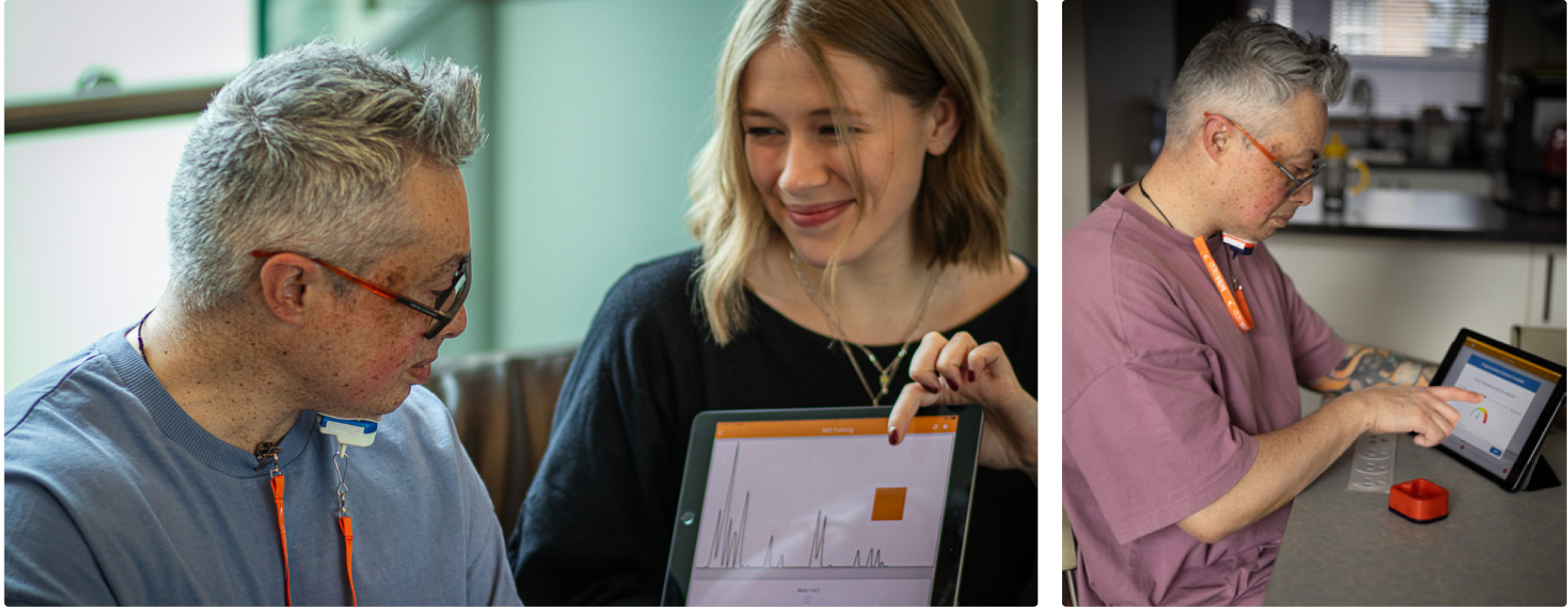Rethinking rehab
Dysphagia affects millions worldwide, and a Christchurch start-up is combating it with a different approach.
Imagine being unable to swallow – no more morning coffees, no holiday meals with loved ones, and even your own saliva causing coughing and choking. For thousands of New Zealanders, this is daily life. Dysphagia, or swallowing difficulties, often stem from conditions such as stroke or Parkinson’s Disease, and can be frightening, isolating, and costly. Even just dysphagia following stroke, according to research, cost our healthcare system $77 million in 2021.
Swallowing Technologies (SwalTech®), a Christchurch-based MedTech startup, is working to change this. Their mission: to revolutionise dysphagia rehabilitation using world-leading clinical evidence and purpose-built technology.
The story begins with Distinguished Professor Maggie-Lee Huckabee, a clinician and academic with over 40 years’ experience. After successfully treating an ‘untreatable’ patient, Maggie-Lee dived into the world of research, taking up an academic post at the University of Canterbury. Challenging the assumption that dysphagia is always caused by muscle weakness, her research has largely explored the role of motor planning in swallowing – or in layman’s terms: the role of the brain.
This research eventually led to the development of BiSSkApp (Biofeedback in Strength and Skill Application), created in collaboration with the University of Canterbury’s Rose Centre for Stroke Recovery and Research. Unlike traditional rehabilitation methods, BiSSkApp allows users to ‘see’ their swallow, track progress, and access intensive rehabilitation remotely – with clinician support. Its three core components make swallowing therapy accessible anytime, anywhere – helping restore independence, improve recovery, and enhance quality of life.
SwalTech, led by CEO Emma Hayes, now employs a team of 10 and is rolling out the product across New Zealand and Australia.
Team member Eric Knapp knows the results of this technology personally. A career firefighter, he suffered multiple strokes at age 32, losing both speech and swallowing. Intensive rehabilitation using a similar approach restored his ability to eat, drink, and be merry. Now part of SwalTech, Eric serves as a patient advocate, bringing lived experience to ensure patients remain at the heart of the company’s work.

